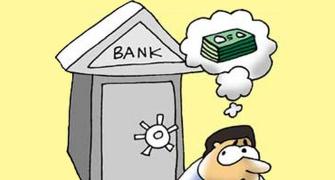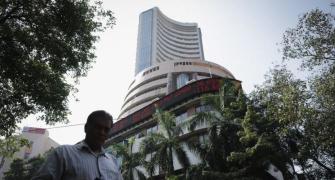 The excise duty was increased on bulk drugs and intermediates from 8% to 10%, but fortunately the excise duty on formulations remains at 4%
The excise duty was increased on bulk drugs and intermediates from 8% to 10%, but fortunately the excise duty on formulations remains at 4%
Budget provisions
- The excise duty on drugs intermediates and bulk drugs increased to 10% from 8%.
- The weight deduction on expenditure incurred on in-house R & D to all-manufacturing business has increased from 150% to 200%.
- Minimum Alternate Tax (MAT) has been increased to 18% of book profits from 15%.
- Surcharge on Corporate Income Tax has been reduced 10.0% to 7.5% on domestic companies. This will reduce the tax incidence of the domestic pharmaceuticals sector.
- The weighted deduction on payments made to National Laboratories, research association, colleges, universities and other institutions, for scientific research from 125% to 175%.
- Custom duty on all medical devices was reduced to 5%.
- The excise duty on crude oil was restored to 5%, diesel and petrol to 7.5% and other refined products to 10%.
Industry expectations - not fulfilled
- Custom duty on all life saving drugs should be exempted from custom duty - Not fulfilled.
- Reduce custom duty on formulation can be decreased to 5% - Not fulfilled.
- Drugs come under "Interferon alpha" segment are considered as life saving drugs and exempted from customs duty. In the same, Interferon beta-1b, Pegylated Liposomal Doxorubicin Injection & Doxorubicin and Doxorubicin Hydrochloride Liposomal injection are need to added in life saving drugs. All these drugs should exempt from Customs. - Not fulfilled
Budget impact
The increase in the excise duty on intermediates and bulk drugs from 8% to 10% will not affect most of the frontline players, as they have in-house bulk drug production, which is used to produce formulations, which continue to attract only 4% excise duty. Also, excise duty on bulk drugs can be adjusted against excise duty on formulations, and in most cases the incremental excise incidence will be nil.
Only if the value addition from bulk drugs to formulations is less than 250% (if bulk drug cost Rs 100 and if formulation costs less than Rs 250), then there will be under recovery, especially for (a) formulators buying bulk drugs from other players (b) for exporters of formulations who buy bulk drugs.
The latter will be suitably compensated, if there is corresponding upward revision in the export incentives / duty drawback, factoring in the increased excise incidence. But the revision of export incentives can happen only in June - July 2010, and until then these players have to suffer, and if the revision does not happen in June 2010 too, then they have to continue to suffer for the whole of the current fiscal.
The increase in the weight deduction in income tax on expenditure incurred in in-house R & D from 150% to 200% and the payments made to National Laboratories, research association, colleges, universities and other institutions, for research from 125% to 175% will boost spending on R&D.
The levy of custom duty of 5% on crude oil will make increase the inputs costs. As crude oil & its derivates are key raw materials for many chemicals and intermediates, pharma sector will also be marginally impacted.
Increase in MAT rate 15% to 18% also increases cost for export-oriented companies.
Scrip to watch
Dr Reddy's Laboratories, Glenmark Pharmaceuticals, Biocon, Suven lifesciences, Bafna Pharmaceuticals and Syncom formulation
Outlook
At a time when most of the sectors were impacted by 200 basis point hike in excise duty, the Indian pharma sector was fortunate with mere 4% excise duty on formulations. Though some sections will be impacted by hike in excise duty on bulk drugs, from the sector perspective this adverse impact is too marginal. Even those could be addressed by suitably increasing duty drawback rates.
On the positive side, if the duty draw back rates are enhanced due to hike in excise duty on bulk drugs, the incremental benefit to Indian pharma sector will be significantly higher, as most of the players would not have suffered higher excise incidence (due to producing bulk drug on their own, and using them to produce formulations), but will still benefit from higher duty draw back rates.
In addition, there will be substantial reduction in income tax incidence due to increase in the weighted deduction on expenditure incurred in in-house R & D and also due to cut in surcharge on corporate tax of Indian companies from 10% to 7.5%. Overall, the pharma industry turned to be a major beneficiary of the Union Budget 2010-11, for being ignored in excise duty hike, and for increase in weighted deduction of in-house R & D expenditure for Income Tax Purposes.







